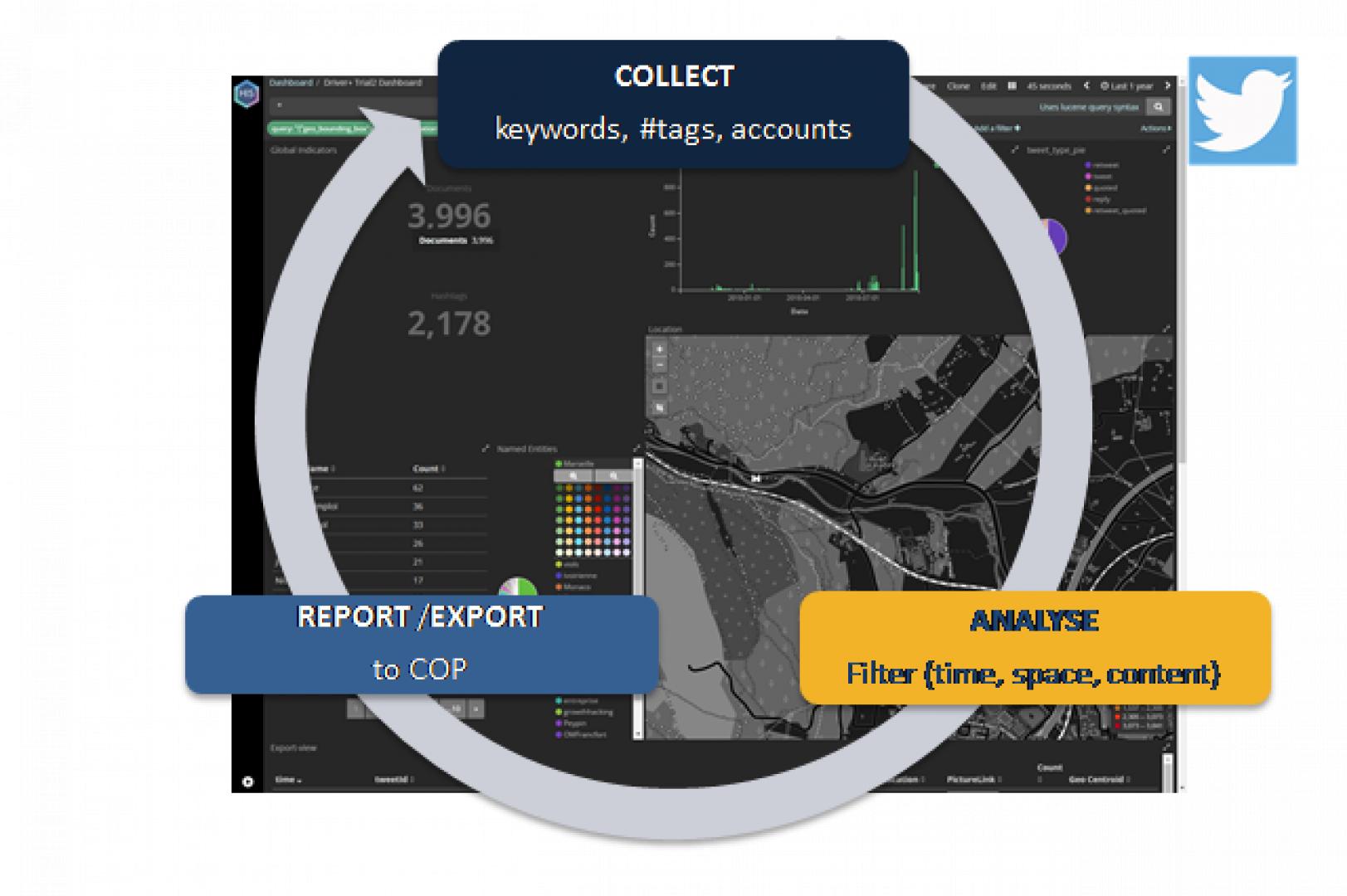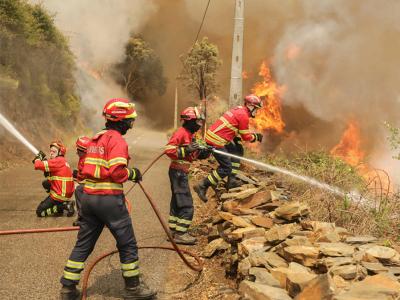Contact
Provider(s):
You must log in in order to see contact information. If you don't have an account, you can ask for one on this form.
SMAP enables to find information relevant to a crisis in Social Media.
Social Media contain information which can contribute to situation . This information can concern the incident itself, its impact, or the needs of the population affected by the .
When trying to take Social Media into account, Crisis Managers face a major challenge due to the high volume of information. SMAP supports this process by automating the collection process, and offering mining tools based on content analysis, time and geography.
Supported Use Cases
Crowd sourcing
Rumour debunking
Innovation stage
Readiness
Crisis Cycle Phase
Crisis size
Supported standards
Illustrations
 |
Portfolio of Solutions web site has been initially developed in the scope of DRIVER+ project. Today, the service is managed by AIT Austrian Institute of Technology GmbH., for the benefit of the European Management. PoS is endorsed and supported by the Disaster Competence Network Austria (DCNA) as well as by the STAMINA and TeamAware H2020 projects. |

